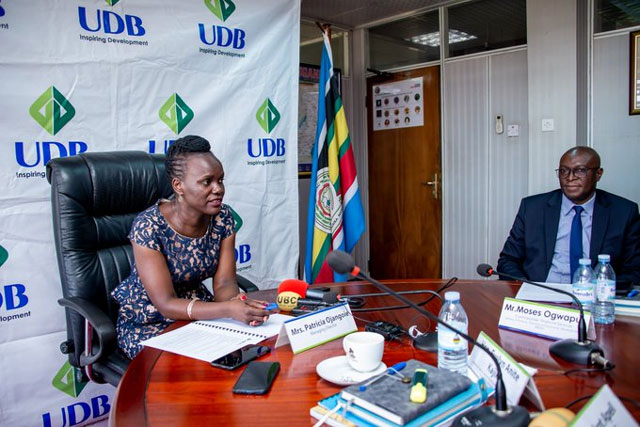
Kampala, Uganda | THE INDEPENDENT | The Uganda Development Bank, the country’s national development finance company, made a record level of loan approvals in 2021, with total lending of sh635 billion.
The approved loans are the highest since 2011, denoting a 10-year-high, while the loan stock grew more than half to close at sh781 billion, according to the financial statements just released. The Bank’s investment activities also created and maintained 41,338 jobs during the year, growing by 72 per cent from 24,013 jobs registered in 2020.
The Ministry of Finance, Planning and Economic Development attributed this to the sustained promotional activities targeted at Small and Medium Enterprises to access financing for revival from the effects of the COVID-19 pandemic. The good performance over the year was also reflected in the profit worth 38.8 billion Shillings which was a growth of 76 per cent from the previous year.
The growth in the lending levels also meant an increase of more than half in the income from interest rates and fees to 113 billion Shillings. Interest and fees are the main sources of revenue for the organisation and the banking industry as a whole.
The bank’s Managing Director, Patricia Ojangole says the bank will continue funding various projects, having approved 635.5 Billion Shillings in new funding to different sectors. Upon full implementation of this funding, a total of 7.05 Trillion Shillings in output value, will be realized, on top of the expected jobs.
The profit growth was also because of continued growth in the capitalization of the Bank coupled with an increase in investment rest-earning assets, notably, loan disbursements to development projects,” says the statement.
The government capitalized the Bank with 104 billion Shillings in 2021 increasing the cumulative capital contributions to 1 trillion and 15 billion Shillings. At the Annual General Meeting held on Friday, the shareholders also allowed the Bank to retain 38.8 billion Shillings as additional capital to be used by the Bank to finance qualifying development projects in the country.
This, according to the Managing Director, Ojangole, will continue to strengthen the bank’s capital, which has now gone to more than a trillion Shillings.
Over the year, the COVID-19 effects continue to affect business operations for most of the bank’s customers, but the bank says it introduced several initiatives to buttress businesses from the devastating effects.
“This called for deliberate interventions to respond to the specific needs but also in alignment with the government’s priorities under the NDP III. To cater for the underserved sections of the population, UDB launched products specifically tailored for women, SMEs, and the youth,” said the Acting Board Chairman, Rita Apel.
However, as the strength of the COVID-19 pandemic ebbs worldwide, the high inflation due to the high costs of imports has led to a high cost of living which is affecting the demand for goods and services.
The Bank’s Chief Economist, Dr Francis Mwesigye says this will definitely affect their customers because the high cost of inputs is pushing up the cost of production, yet the high inflation is forcing consumers to reduce spending on some goods and services. He, however, says they will continue finding ways of mitigating these effects on their clients.
To drive the resilience and sustainability of businesses, the Bank introduced the Business Accelerator for Successful Entrepreneurship program which aims to assist enterprises to formalize as well as to professionalize their operations, in order to access capital for growth, said the Managing Director.
On the negative feeling and reports of the bank being insensitive to SMEs over their inability to meet financing requirements, the Ojangole says they have been improving the terms for the smaller borrowers, including helping them upgrade their operations to meet the requirements.
The Bank remains resolute on making a significant contribution to the country’s socio-economic transformation and will in 2022 and beyond, focus on the mobilization of adequate capital to enable UDB to continue to deliver its mandate,
In 2022 and beyond, the Bank says it will undertake the implementation of an industrialization strategy that aims to accelerate industrial productivity, import replacement and export promotion; advance the Bank’s holistic sustainability agenda and deepen financial inclusion for SMEs, women and youth.
****
URN
 The Independent Uganda: You get the Truth we Pay the Price
The Independent Uganda: You get the Truth we Pay the Price



